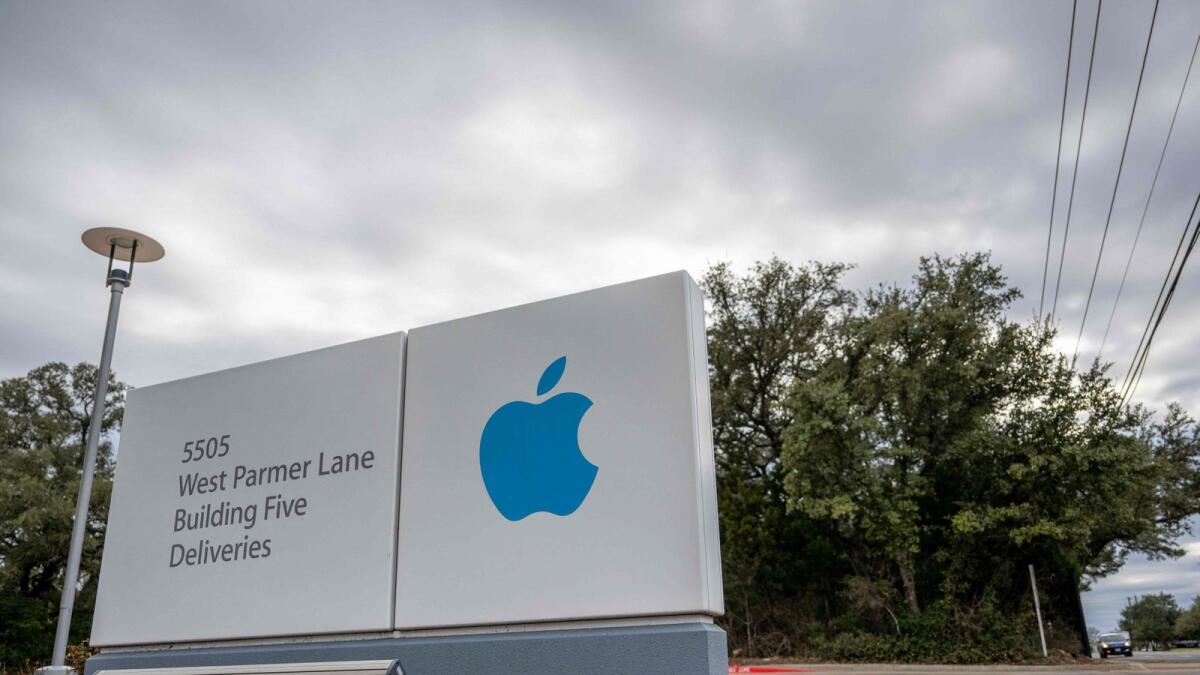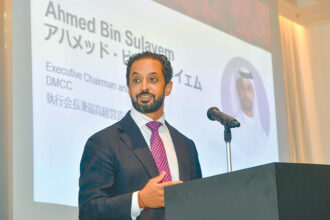An Apple Inc sign is seen at the Apple Campus in Austin, Texas. — AFP
Technology will save us! No, it won’t!
Whenever the climate-policy debate addresses specific economic sectors, potential carbon-abatement technologies, or energy strategy, the same fundamental question always arises: How much can we rely on “simple,” preferably “cheap,” technofixes? Can climate change be addressed by counting on people to switch to lower-carbon technologies, or will it take more fundamental changes to how we live and organize ourselves as a society?
These are not just philosophical or academic questions. In today’s political culture, they have been among the issues that most divide right and left. One side trusts markets and new technologies to fix everything, while the other insists that public policy must play a leading role. Yes, this caricature is far too crude. But recognizing that it is how many politicians, polemicists, and their followers frame the matter can help us analyse, and ultimately improve, how new clean-technology developments are received.
Consider the apparent scientific breakthrough in nuclear fusion last month. Longstanding debates about nuclear energy returned to the fore. Techno-optimists seized on the idea that we may have unlocked a source of truly unlimited clean energy. That would be in everyone’s interest, regardless of political stance, and it would seem to confirm that human ingenuity holds the key to our salvation.
But not even the most ardent techno-optimists can claim that technology will save us on its own. After all, this first-ever fusion ignition happened at Lawrence Livermore National Laboratory, a US federal research facility where government scientists conduct experiments paid for with taxpayer money.
Yes, there are also startups working on fusion, in the hope of launching the first demonstration plants in the coming decade. But they, too, are clamoring for government funds, whether direct subsidies or the Department of Energy loan guarantees enabled by the Inflation Reduction Act. The picture is no different in the United Kingdom or elsewhere, nor is it confined to fusion technology. Silicon Valley, that bastion of techno-libertarianism, depends on government funding and favorable policies more than many other industries do.
None of this will come as a surprise to those working in the energy sector, which includes some of the world’s most heavily regulated, taxed, and subsidized industries. Governments pick winners all the time, and lobbying plays no small part in the process.
Now consider a second recent episode. Cookstoves have been catapulted into the center of the US culture wars, following a statement by a federal consumer-protection agency voicing concerns about their effects on household air quality. Induction represents the new technology, gas the old, and the debate has both too much nuance and too much nonsense for the public to make sense of it easily.
In this case, many on the right – who would ordinarily trust technology to save us – are siding with the old technology in the name of opposing government “overreach.” But unlike in the past, they can no longer argue against induction on the grounds that it costs more. You can now get an induction plate at IKEA for $70.
Shifting from gas to induction could be considered largely symbolic in the fight against climate change. Yes, most homes in temperate and cold climates use significantly more gas for heating than for cooking. But this step would go well beyond mere symbolism in households where it would mean cutting off the gas line altogether.
The fusion and stove debates show why getting technology right requires moving beyond simplistic yes-no shouting matches. As a general matter, no one should dispute that we need both new technologies and new policies to cut carbon dioxide emissions at the necessary pace and scale. Just ask the Texas Land and Liberty Coalition, an advocacy group representing traditionally conservative farmers and ranchers. The group is calling for policies to advance renewable-energy projects across the state.
All techno-optimists should be doing the same. If you believe that new technologies are the answer to climate change, you should want the state to use policy levers to hasten those technologies’ deployment. But the problem is that many who are lobbying for such policies are doing so in private, while those who are lobbying against new technologies are much more vocal about it. As a result, public discourse remains a caricature.
With a more nuanced debate, the public would appreciate that not all technological solutions are created equal. Induction stoves, heat pumps (the more efficient electric alternative to gas), retrofitting, and solar and wind power are all ready to be deployed at scale – immediately. But other technologies – chiefly nuclear fusion, but also green liquid fuels for uses where electrification is much more efficient – are not. They are at best a distraction, or, worse, an excuse for continued inaction. They could still deliver future benefits with more research and development funding; but that must not detract from cutting CO2 emissions this decade.
As the joke goes, nuclear fusion has been 30 years away for decades. Now that it has been achieved in a lab setting, those 30 years may actually be true. That means the technology could well become an essential part of the low-carbon electricity mix in the second half of this century. But, given that timeline, nobody who understands the climate science would suggest nuclear fusion as the only technofix. Roughly seven million people are already dying each year from air pollution, which is largely caused by the burning of fossil fuels, and our ability to keep climate change in check depends on what we do between now and 2030, and then between 2030 and 2050.
No solution is sufficient on its own. But speeding up the adoption of already proven and scalable technologies is a necessary goal, especially when the many hidden costs associated with fossil fuels are included in the calculus, and will require new policies to guide investments in the right direction. Techno-optimists ought to be their loudest advocates.
Technology alone will not save us. But nothing else on its own will, either.
Gernot Wagner, a climate economist at Columbia Business School, is the author, most recently, of Geoengineering: The Gamble
Read the full article here















